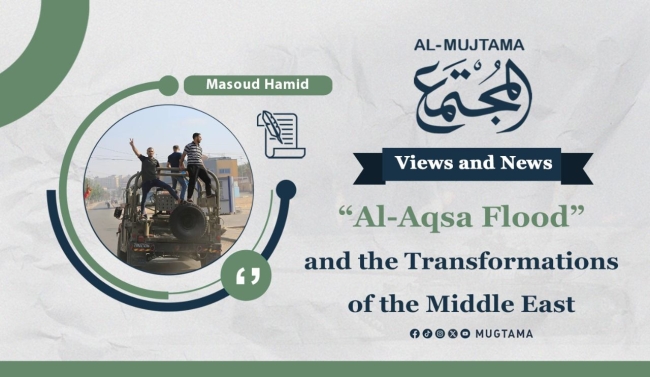“Al-Aqsa Flood” and the Transformations of the Middle East Featured
Despite the diverse topics covered in the seventh conference on "Cracks in Conflict in the Middle East", the Palestinian issue remained the main concern for researchers, forming a common axis in all discussions.
The conference was held on October 15-16, 2024, at Istanbul Gelisim University, and the research varied between political and economic aspects.
Professor Shanul Durjan, a professor of international politics at Gelisim University, presented a paper titled "The Middle East in the context of the global sovereignty system", emphasizing that the presence of Jerusalem alone is enough for the clash of civilizations, as it is a meeting point of cultures that has been occupied by various states throughout history. After the fall of the Ottoman Empire, the Zionist entity became a Western agent to the extent that America no longer cares about its identity.
In his paper titled "The Middle East: A Colonial Concept Originating in Orientalist Laboratories", Dr. Saif al-Din Abdul Fattah attacked the term and concept of the Middle East, describing it as fraught and inhabited by normalization, asserting that it is a project without a concept, and that we must confront it with a project inspired by " Al-Aqsa Flood", encouraging awareness of the moment and seizing opportunities such as the chance for a civilizational resistance.
He pointed out that there is the opportunity for an ideological confrontation and building a coherent vision of the nation's conflict with the Zionist entity, noting that the battle of " Al-Aqsa Flood" provided a model to follow in constructing an integrated ideological vision that adheres to resistance, embodying the doctrine of effective faith-based action without waiting for immediate results.
Dr. Abdul Fattah added: There is the opportunity for values and a call for Islamic values compared to the erosion of Western civilization values on the ground and in the field.
The opportunity for the Islamic civilizational model, like " Al-Aqsa Flood", is an opportunity for the integrated civilizational model of the Islamic vision, as the seventh of October presented a new epic chapter in the long and stubborn colonization settlement process, one of its major and exceptional battles. What we witnessed in Gaza and the West Bank and continue to witness with the success of a few fighters from the factions in pushing back the stagnant policies, and changing the balance of power, could reshape the Middle East geopolitics and mark a new chapter in the long process of decolonization.
Abdul Fattah elaborated on the political and strategic opportunities. Rising opportunities with the volcano.
Dr. Abdul Fattah said: "There are favorable opportunities, including the geographic opportunity and the battle for Jerusalem and the Al-Aqsa Mosque. The 'Al-Aqsa Flood' proved the theory of Advisor Tarek Al-Bashri 'the geographic container', which confirmed that Palestine is the container of Jerusalem and its carrier, Jerusalem is the identity of Palestine."
Regarding the political opportunity, Dr. Abdul Fattah said: "Despite the siege and destruction, the 'Al-Aqsa Flood' had a valuable political opportunity that manifested at several levels, whether local and internal, regional and international, or universal civilization levels. These achievements, whether on the seventh of October or the historical resilience that followed, serve as a beacon of the leadership, resistance, and people of 'Al-Aqsa Flood' who believe in themselves, their nation, and their identity, exerting all precious efforts to protect and defend it."
'Al-Aqsa Flood' granted the Palestinian issue a historical political opportunity for the first time through Spain, Norway, and Ireland officially recognizing the Palestinian state. The battle proved that war is the only solution to establish the Palestinian state and apply international law to the Palestinian issue. The 'Al-Aqsa Flood' elevated the Palestinian issue to an unprecedented global level, opened the door to embody recognition of the rights of the Palestinian people, especially their right to a state on their land and soil.
He also mentioned the cultural opportunity and normalization crimes. The battle exposed the crime of normalization and attempts to appease Israel, as well as an opportunity to condemn the phenomenon of Zionism and reveal its nature to the public opinion.
Regarding the historical opportunity and universal discourse, Dr. Abdul Fattah said: "The essence of the issue is to reshape memory," explaining that the 'Al-Aqsa Flood' exposed all the black propaganda that targeted Palestinians, accusing them of neglecting their land or seeking to abandon it.
He stated: "The deep sacrifices made by the Palestinian people prove the opposite entirely, this people cling to their land and nation, even at the cost of their lives and everything they possess."


